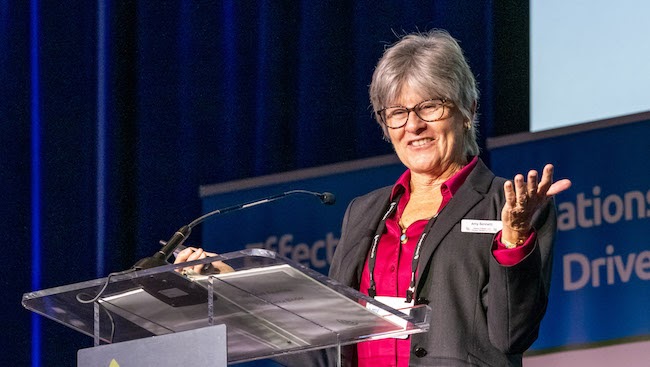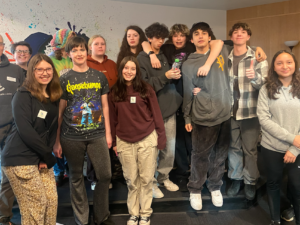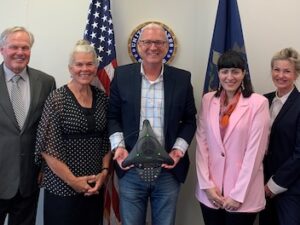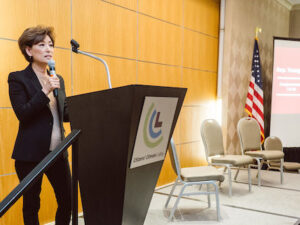
Amy Bennett, CCL’s Director of Congressional Liaisons and Lobby Days, says this success story is “an honest to goodness demonstration of political will.”
By Steve Valk
Editor’s note: This post was updated Sept. 25, 2020, to reflect inclusion of the BEST Act in the Clean Economy Jobs and Innovation Act that was passed in the House on Sept. 24, 2020.
Citizens’ Climate Lobby had the opportunity to flex its lobbying muscle in July, and our volunteers delivered: they helped bring 24 new cosponsors, both Democrats and Republicans, onto the Better Energy Storage and Technology (BEST) Act in just one week.
“We’ve built a machine that works, and it works very well. Twenty-four cosponsors in a week is not bad,” said CCL VP for Government Affairs Dr. Danny Richter on a call with CCL volunteers. “This is the kind of story that will enable us to be at the table on future climate legislation.”
While the Energy Innovation and Carbon Dividend Act is the primary focus of CCL’s lobbying efforts, in recent years, volunteers have also lobbied Congress on other legislation as “supporting asks.” Our legislative team chooses bills to be supporting asks based on several criteria:
- Cosponsors from both parties
- Complementary to the Energy Innovation Act
- Address policy issues that a carbon price does not
One of those supporting asks is the BEST Act, which would provide research and development for grid-scale energy storage systems and authorize at least five demonstration projects for new energy storage technologies. Such technology is viewed as essential to the deployment of solar and wind energy for times when the sun is not shining and the wind is not blowing.
The bill was introduced as bipartisan legislation in the House — H.R. 2986 — in spring of 2019 by Rep. Bill Foster (D-IL). In the Senate, the bill — S. 1602 — was introduced last fall by Maine Republican Susan Collins and New Mexico Democrat Martin Heinrich.
“Energy storage is one of the great frontiers in new technology that could transform our nation’s energy sector as we move to more environmentally sustainable energy models,” Foster said in a press release when he introduced his bill.
The BEST Act complements the Energy Innovation Act, which provides the economic incentive for transitioning to cleaner sources of energy. By helping to develop grid-scale energy storage, the BEST Act would improve the reliability of renewable energy like wind and solar, making fossil fuel-sourced energy unnecessary.
In June, the BEST Act was incorporated into the $1.5 trillion infrastructure bill — the Moving Forward Act (H.R. 2) — that was passed in the House. The Senate, however, is not expected to take up that bill. Sponsors of the BEST Act then sought to move their legislation forward through other means.
Enter CCL, with our grassroots lobbying chops.
With time running out to add cosponsors, Rep. Foster’s office asked if CCL could help with a last-minute push for additional support to bolster the case for moving the BEST Act forward.
This is where CCL’s “machine that works” had its moment to shine.
Within each CCL chapter, there are volunteers designated as liaisons, who schedule meetings with congressional offices and develop relationships with Hill staffers who focus on energy and environment policies. Those relationships enable liaisons to communicate quickly and effectively with House and Senate offices.
“We were excited when Foster’s office wanted another push for more cosponsors,” said Amy Bennett, CCL’s Director of Congressional Liaisons and Lobby Days. Through conference calls and emails, Bennet put out an action alert that went to more than 400 of CCL’s congressional liaisons.
Thanks in part to our liaisons engaging with Hill offices, 24 cosponsors signed on to the bill in just one week, pushing the number of cosponsors for the BEST Act past 100.
That show of support was apparently enough to include the BEST Act in the Clean Energy Innovation and Deployment Act (H.R. 7516), a comprehensive bill passed by the House on Sept. 24. House lawmakers are hopeful the Senate will pass its energy bill and then work out differences between the two bills in conference committee.
Bennet said this success was another opportunity to empower volunteers. “There’s no question this allowed the volunteers to feel like, ‘Wow! I helped move that bill forward. My chapter helped move that bill forward.’ This is an honest to goodness demonstration of political will.”
Quick action on the BEST Act is not the only example of CCL’s ability to push climate-related legislation:
- CCL volunteers have gotten 17 op-eds published, like this one in the Lincoln Journal-Star, in praise of another supporting ask: the Growing Climate Solutions Act. The bill, which would help farmers get paid for climate-smart practices, also added 15 cosponsors to the House bill following CCL’s June lobby days.
- Another one of CCL’s supporting asks is the RECLAIM Act to help economically distressed coal communities. Shortly after CCL’s June lobbying effort, the legislation was rolled into the same infrastructure bill in the House that the BEST Act became part of.
- The USE IT Act to develop carbon capture and utilization technology, another CCL supporting ask, was rolled into the National Defense Authorization bill passed in the Senate.
Looking ahead to 2021, if there is a change in administration, Government Affairs VP Richter expects an early push for a big package of climate solutions.
“I want a carbon price to be the backbone of that climate package, and I want CCL to have a seat at the table when that package is being discussed.”
A key factor in getting climate legislation passed will be support at the grassroots level. With the BEST Act and other successes, CCL has demonstrated it can deliver that grassroots support.
“We have already earned a seat at any and every table that is discussing this climate package,” said Richter.
Are you located in Maine and interested in volunteering?





